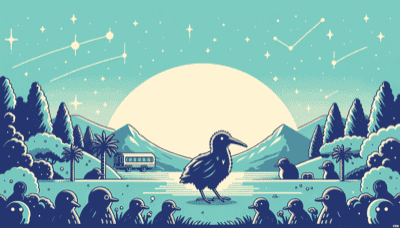We're here to help you keep count of the days to or since a date. Just click the button below and enter your chosen date to get started. Also choose the suggested days or search for a special day above #countingthedays

April Fools' Day, observed on April 1st, is a day known for practical jokes, hoaxes, and good-humored pranks in New Zealand, as in many other parts of the world. The day is not a public holiday but is widely recognized and celebrated across the country.
The origins of April Fools' Day are uncertain, with various theories suggesting it evolved from ancient festivals such as Hilaria or the vernal equinox celebration when nature "fools" people with unpredictable weather. In New Zealand, as in other former British colonies, the tradition likely came with European settlers.
Traditionally, people play jokes on friends, family members, and colleagues before midday. Following this unwritten rule, someone who plays a prank after midday is themselves considered the 'fool.' Media outlets often participate by publishing fake stories or broadcasting humorous segments.
Media Pranks: Newspapers, TV stations, radio stations, websites, and more recently social media platforms may run fictitious stories designed to amuse and occasionally trick their audience.
Corporate Hoaxes: Companies might advertise fake products or services to engage with customers through humor.
Personal Pranks: Individuals may play light-hearted tricks on each other ranging from simple jokes like sticking a paper fish on someone's back (similar to "Poisson d'Avril" in France) to elaborate hoaxes that require significant planning.
Educational Activities: Schools sometimes encourage students to partake in harmless pranks as a way of fostering creativity and camaraderie.
Despite its popularity in New Zealand's culture, participants are generally encouraged to keep pranks harmless and in good spirit to ensure that April Fools' Day remains a fun tradition rather than an opportunity for malice or harm.